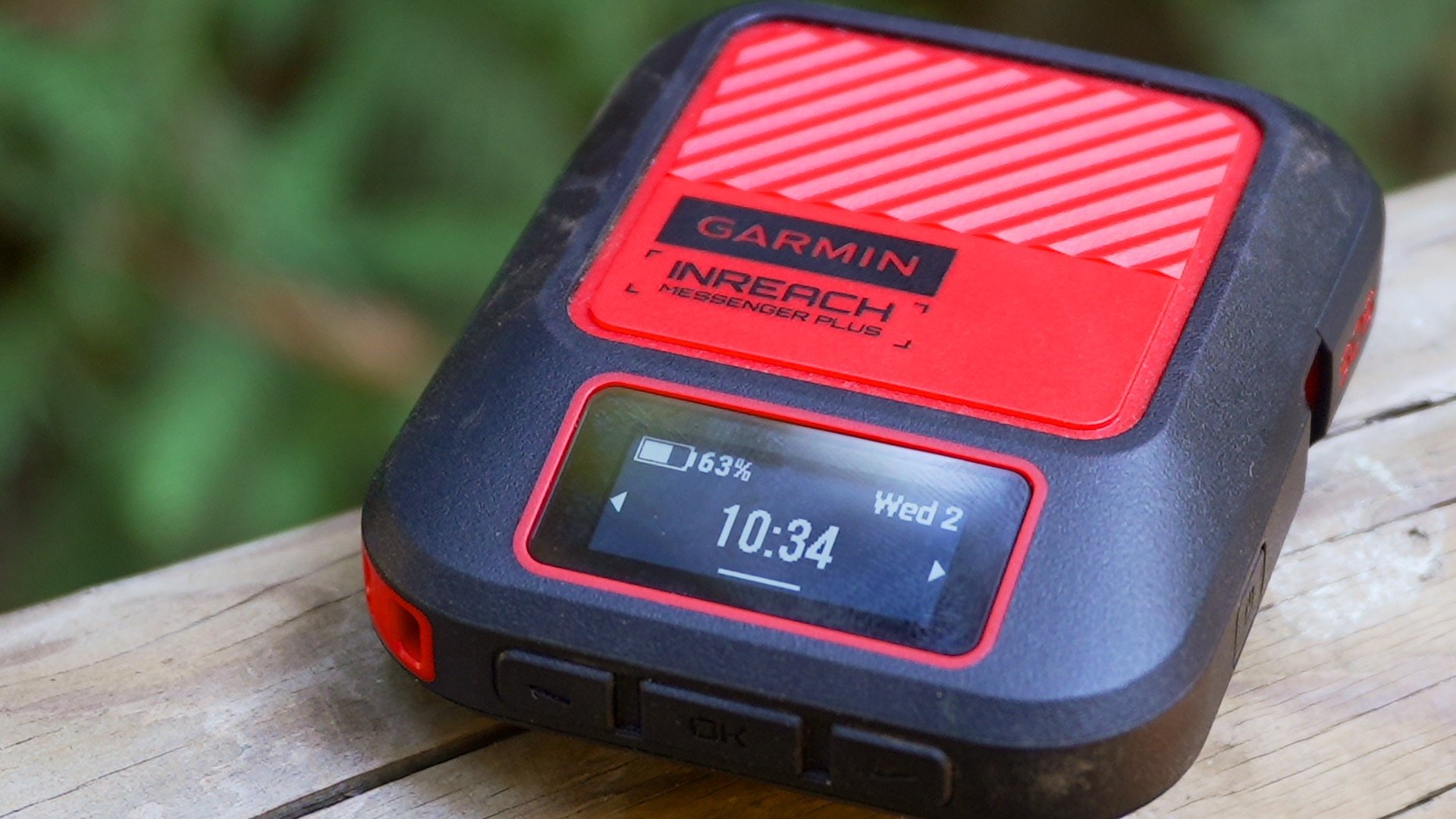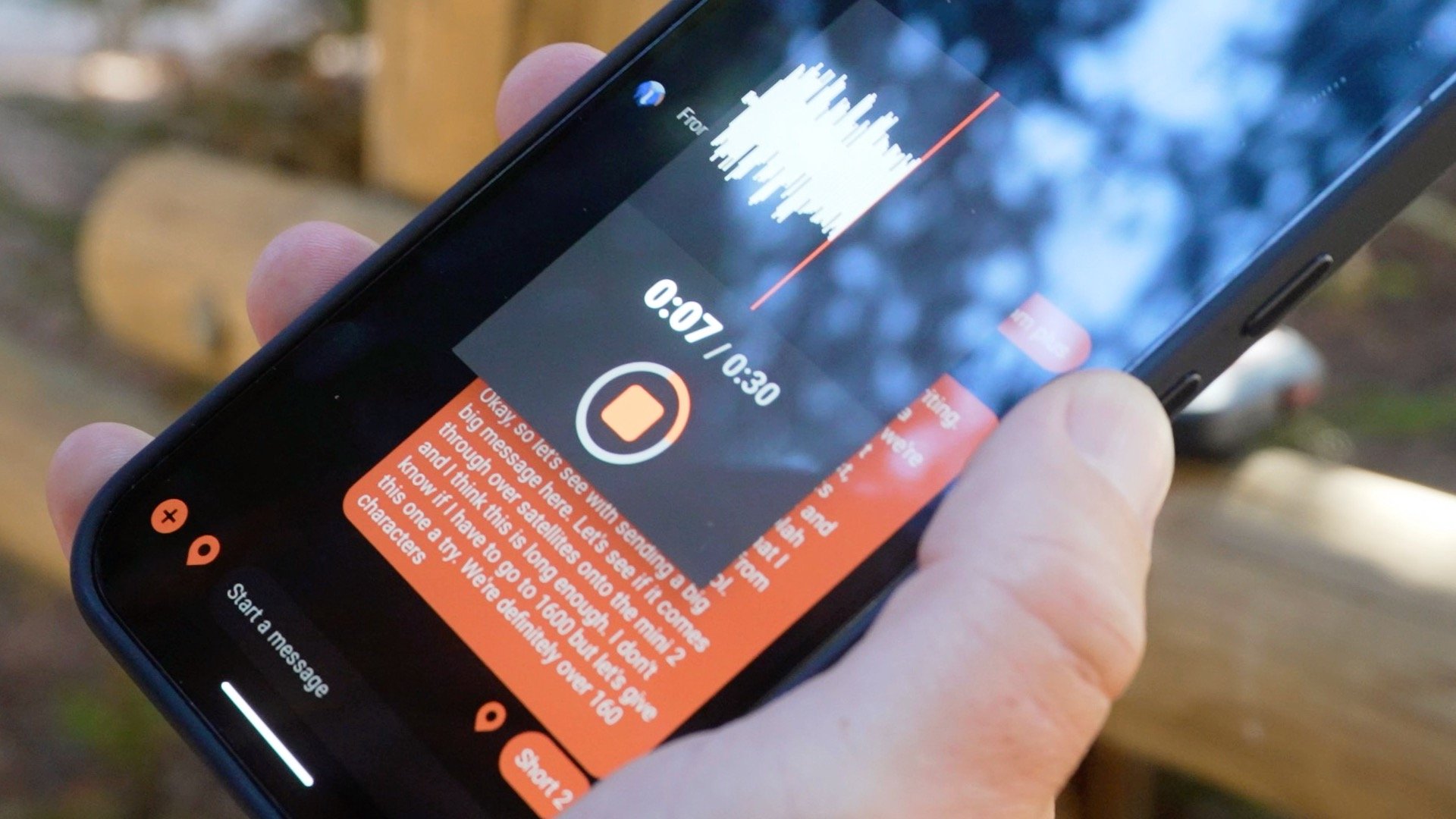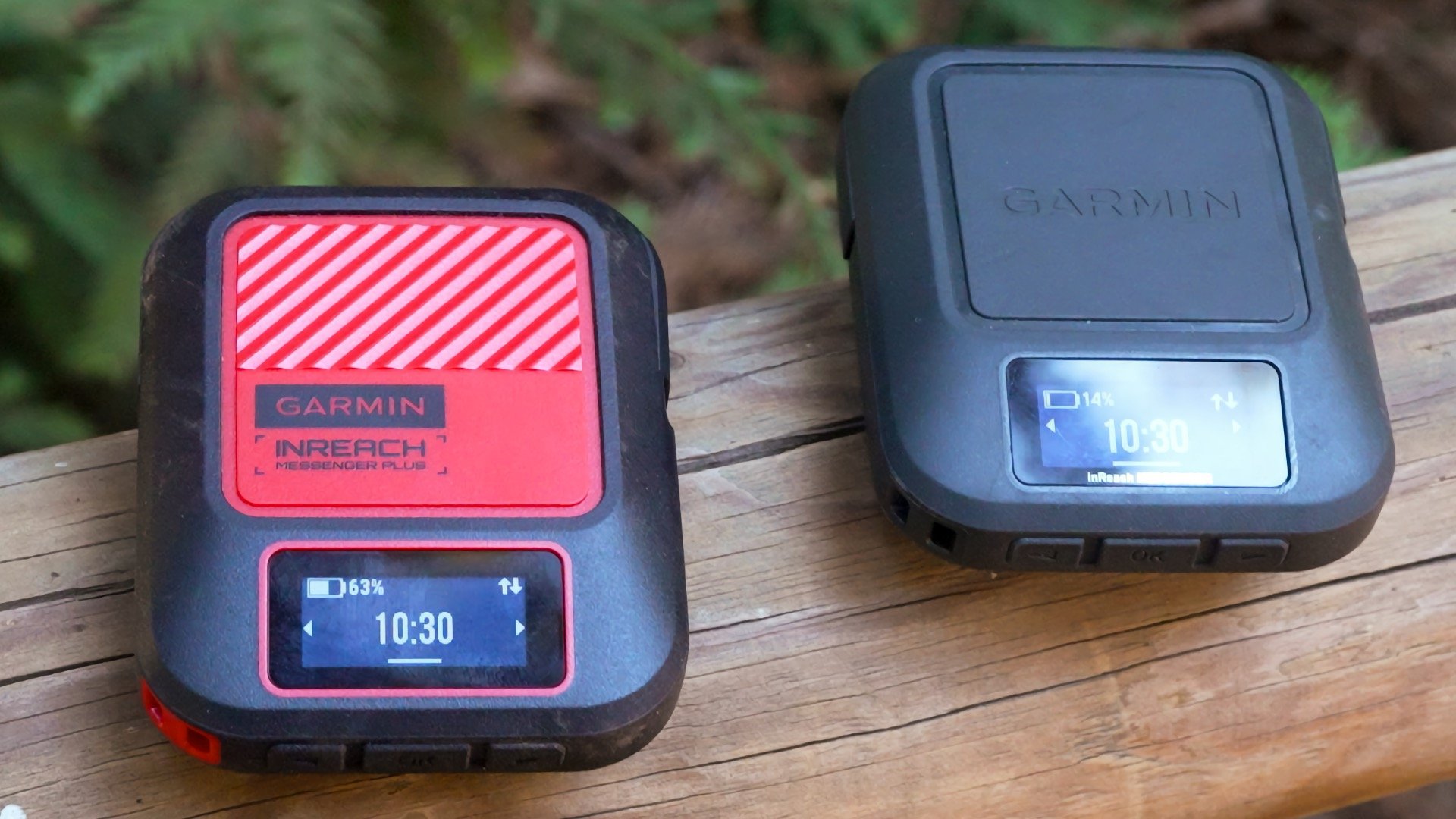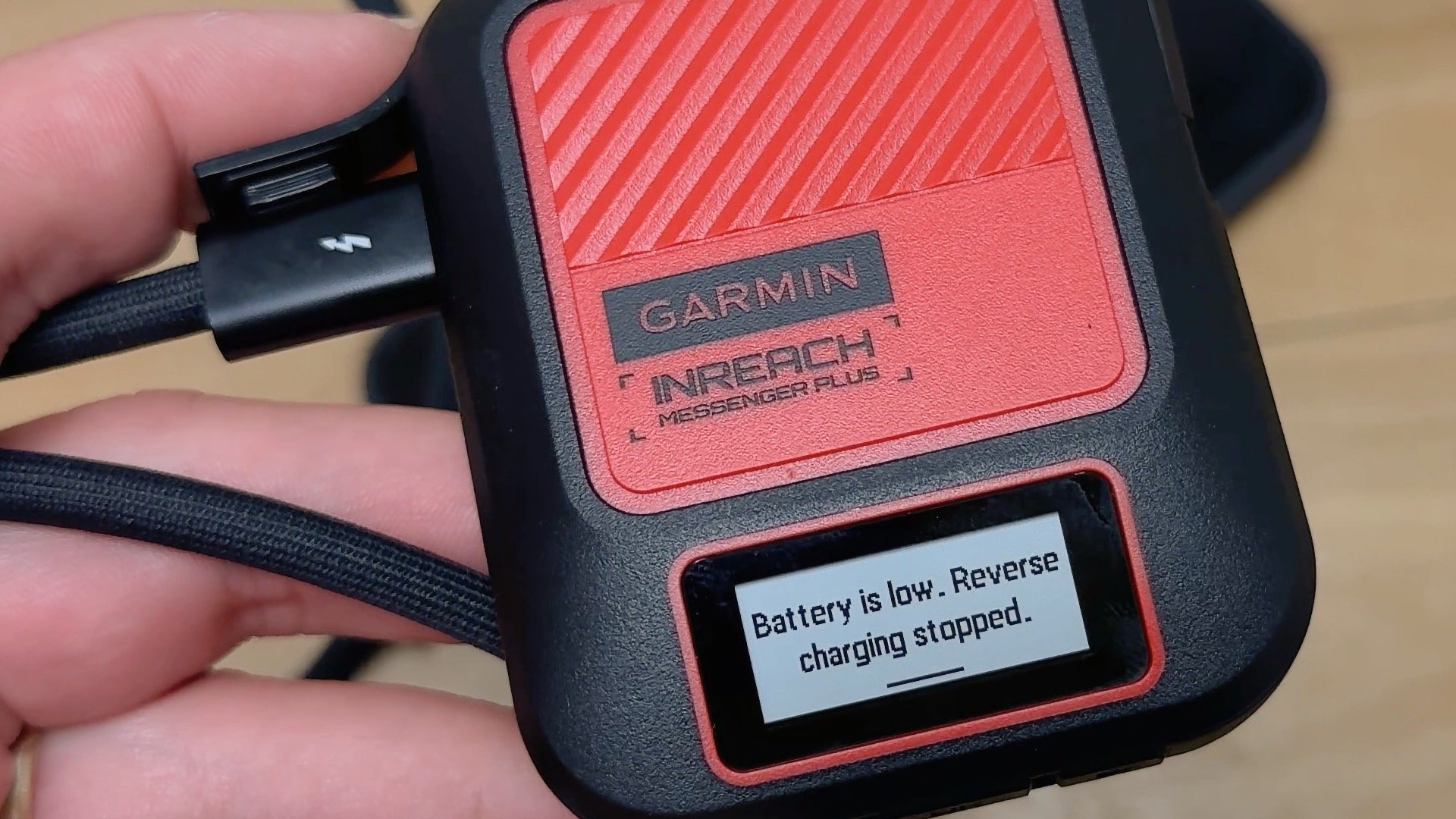
Garmin inReach Messenger Plus Review
The inReach Messenger Plus is the most powerful and groundbreaking inReach device since they first came out many years ago. But is it the right one for you? I've spent many hours with the Messenger Plus out on the trail putting it through its paces so that you don't have to.
Unlike other reviews, Garmin didn’t send me a free inReach Messenger Plus. I bought this with my own money. This review reflects my honest experience. If you want to support independent reviews like this, please use my affiliate link, it’s also the lowest price I could find.
Most Important Features

The Messenger Plus is the biggest change to inReach since the original device. Here’s what matters:
- New Messaging System: Garmin switched from Iridium’s older Short Burst Data (SBD) to a faster, more modern system called Iridium Messaging Transport (IMT), allowing you to send more data faster.
- Send Voice Notes and Images: Now you can send a voice note (not a realtime voice call fyi) and images via satellite when your phone is paired. Garmin Response, the group that handles your SOS, can also receive these types of messages.
- 1600-Character Messages: The 160-character limit that we've seen on older Garmin inReach devices is now effectively gone, the new messaging protocol allows us to send a lot more data.
- Tapbacks and Emojis: You can also use these tools found on modern smartphone messengers. Tapbacks don't have a message cost.
- Higher Transmit Power: The Messenger Plus broadcasts at up to 9.33 watts, significantly more than the 3.89 watts on the original Messenger. This helps with reliability in tree cover and canyons.
- Garmin Explore App Compatibility: Unlike the original Messenger, Garmin has allowed you to leverage navigation features on the Messenger Plus using the Garmin Explore app.
Using the Messenger Plus

I tested the Messenger Plus over lots of trail time, including in some dense Redwood Groves, which traditionally would be hard for a satellite messenger to penetrate. Here's what I found from testing the Messenger Plus, using the original inReach Messenger as a benchmark.
Message Speed
- Messenger Plus was about 20–30% faster in general, but not dramatically faster.
- Both devices usually sent messages in under 2 minutes.
- Photo messages sometimes took 10 minutes or longer, especially in dense forest.
Messaging Improvements
- 1600-character messages go through in full when sent to a phone or another Plus. If you send to a traditional inReach like a Mini 2 or GPSMAP 67i, the message breaks into 160-character chunks. Each chunk counts as a message on that end.
- Voice messages are surprisingly useful and I was able to get a lot of information into one note. You record in the app, and it sends as an audio file. Voice notes can’t be sent to older inReach models.
- Photos are compressed, but look good enough for trail use.
Emergency Features
- SOS still routes through Garmin Response, which now can receive voice and image messages from the Plus.
- These features could be huge in a real emergency, being able to describe an injury or send a photo is a major upgrade.
Navigation
- You can now use your Messenger Plus with the Garmin Explore app, which allows you to download offline maps and create routes or waypoints.
- Connecting the Messenger Plus doesn't really offer any advantages to using Garmin Explore on its own, which leverages the positioning on your phone, which could be better than the Messenger Plus. The Messenger Plus device has onboard GPS, Galileo, QZSS, and Beidou, but no multi-band.
- I originally found some bugs in the trackback functionality (you can see it in the video) but they've since been addressed in firmware.
Messenger Plus Battery Life

One of the things that original Messenger users love is the long battery life, but the Messenger Plus is a little different. That's because the new Iridium Certus feature works more like a satellite connection on an iPhone where it's always connected (or not). Maintaining this connection drains the battery down more aggressively than the original inReach devices, which would connect to send, then drop off. So Garmin has two battery modes with the Messenger Plus:
- Performance mode keeps a near-constant satellite connection and checks for messages frequently. It’s great for back-and-forth conversations but burns through battery fast, especially if you're in heavy tree cover or canyons where the signal is spotty.
- Low power mode works more like the older inReach models. It checks for new messages every hour or so. You’ll still get your messages, just not instantly. Battery life is way better here.
I'd love to just give you some definitive battery usage numbers but I found that it was much more variable than the older inReach models. For example:
- In heavy tree cover, using performance mode, sending several images and messages, the battery life was coming out at around 22 hours.
- In open skies using low-power mode, using 10 minute location tracking, the battery percentage didn't even change over a 5 hour hike.
My recommendation would be to keep it in low power mode unless you know you're going to be going back and forth a lot with someone on the other end.
inReach Messenger Plus Subscription Rates
Garmin updated their subscription plans to accommodate the new image and voice messages, and they ain’t cheap. These messages fall into their own category, separate from regular texts, and each plan includes a set allotment. Right now, overages run $1 USD per photo or voice message. Want to figure out what this will actually cost based on how you use it? I created an inReach subscription cost calculator here.
Is the Messenger Plus Worth It?

The Messenger Plus is a great inReach device, probably one of the best so far, but I do think it's probably best for a niche audience. If you have a specific need for voice notes or sending images via satellite, the Messenger Plus is the move. Otherwise save your money and get the original Messenger or a unit with navigation like the Mini 2 or GPSMAP 67i.
While photos and voice notes might sound frivolous for an outdoor adventure, I do think they offer a massive advantage in an emergency situation. Imagine being able to send an image of a wound, or describe a situation using your voice instead of over text messages. I think this is the real sweet spot. The question you have to answer is what's more important to you, having that ability or having other safety features such as navigation?
Messenger Plus vs inReach Messenger
Should you upgrade from the original inReach Messenger? Not unless you really need images or voice notes.
| Feature | Messenger Plus | Messenger |
|---|---|---|
| Price | $499 | $299 |
| Messaging System | Iridium Messaging Transport (IMT) | Short Burst Data (SBD) |
| Voice Messages | Yes (via app) | No |
| Photo Messages | Yes (via app) | No |
| Message Length | Up to 1600 characters | Up to 160 characters |
| Transmit Power | 9.33 watts | 3.89 watts |
| App Compatibility | Messenger & Explore | Messenger only |
| Battery Life | Up to 600 hours | Up to 672 hours |
| Subscription Rates | Higher for image/voice | Standard |